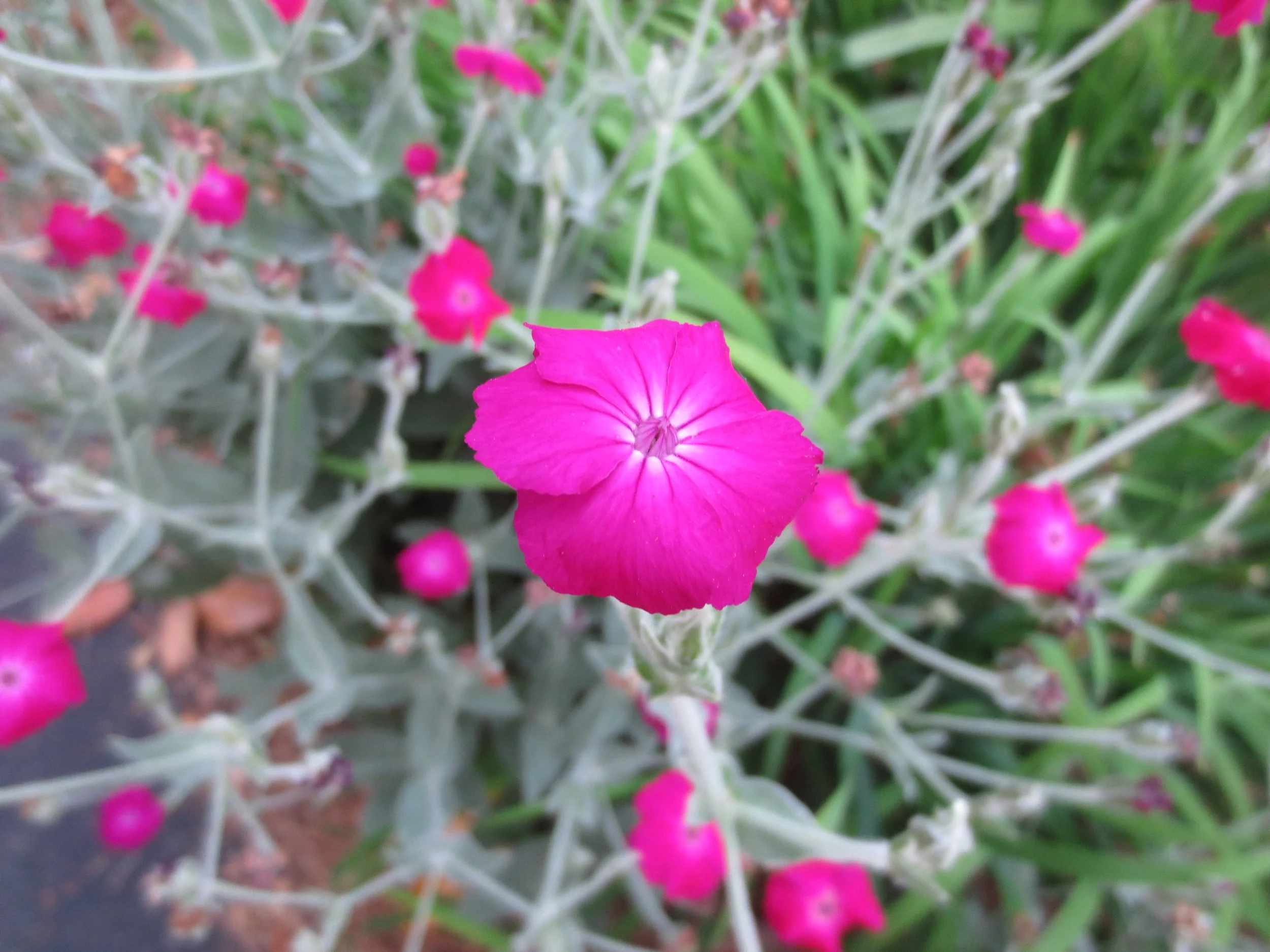Plants that bloom in winter grab our attention. Plants that have sweet fragrance please our noses. My Banana Shrub is in full bloom mid-January, and it does both.
When I purchased this beauty in a one-gallon container some twenty years ago, the label read Michelia maudiae (Banana Shrub) ‘Smiling Forest’. Since then, the plant has been reclassified into the Magnolia genus. I cannot argue with the taxonomists who changed the name. The fragrant blooms look like small versions of the beloved Magnolia grandiflora. The scent carries fruity notes I do not detect in the southern Magnolia, although it does not mimic bananas (my opinion). It has the thick, evergreen leaves of other Magnolias, smaller version. Bonus points: Banana Shrub does not shed leaves daily, making it a good alternative to the smaller stature Magnolias like ‘Little Gem’ or ‘Kay Parris.’
The plant label on Smiling Forest said that it would reach 10 feet. My specimen, unaware of this restriction, is slightly more than twenty feet tall. It is a tree, not a shrub, in the Mary Snoddy garden. It also seems unaware that it blooms prematurely. This out-of-synch bloom is likely due to my poor placement.
Banana Shrub enjoys partial shade. Unfortunately, I sited mine on the southwest side of a metal agricultural building. The building absorbs and releases heat in wintertime, coaxing the Banana into spring behavior. Every year, it blooms beautifully and then is zapped by a cold blast. The ivory petals turn to brown mush and the tender new growth falls, leaving the tree shivering in the cold, partially clad only in older leaves. It will recover by May, with new blooms and new growth, although flowering will not be as heavy as the winter bloom-burst. The tree is far too large to relocate, so I just live with this unfortunate annual near-plant-death experience.
Banana Shrubs grow in zones 7b to 9. They are drought tolerant, once established. They are not bothered by insects or diseases and are not normally browsed by deer. Just pick the right place – partial shade produces a lovely, dense plant that blooms in April.
This Banana Shrub bloom is only three inches across. It is an excellent mimic of its cousin, Magnolia grandiflora
Banana Bush, full bloom. This photo was taken January 14, 2020.


